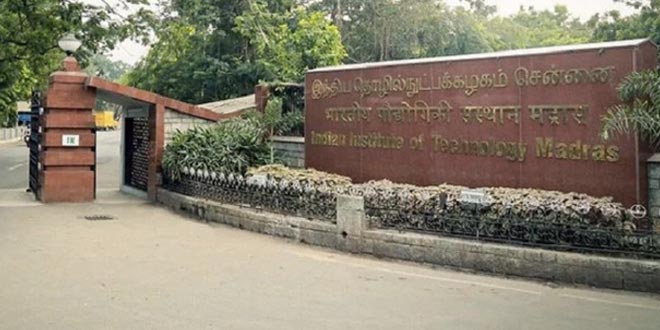Highlights
- It will improve livelihoods for youth, women in periurban settings: Expert
- Unscientific recycling methods are harmful for waste handlers: Researcher
- E-Source is an open-source platform: Researcher
New Delhi: Indian Institute of Technology (IIT), Madras is developing an innovative model to tackle electronic wastes (e-waste) by linking stakeholders in the formal and informal economy, according to officials. Called “e-Source”, the exchange platform that will serve as an online marketplace for Waste Electrical and Electronic Equipment (WEEE) and facilitate a formal supply chain between various stakeholders (buyers and sellers). The initiative is being spearheaded by Indo-German Centre for Sustainability (IGCS).
Also Read: World’s E-Waste ‘Unsustainable’, Says U.N. Report Citing China, India And U.S.
According to officials, the initiative aims to make ‘Waste Electrical Electronic Equipment’ (WEEE) a key resource in the evolution of a circular economy by establishing traceability and recovery of post-consumer e-waste in the market.
A novel open-source solution is needed that is data enriched, leveraging the potential of transparency in formalised e-waste handling and management. E-wastes are typically either completely stripped down for precious metals and other high-value materials or dumped in landfills, without exploring potential re-use and repurposing options. Unscientific recycling methods are harmful for waste handlers and the environment. E-Source is a unique open-source platform that will evolve towards using machine learning for better traceability of e-waste in compliance with guidelines and help increase the opportunities for repair and re-use of e-waste, said Sudhir Chella Rajan, Faculty Member, Indo-German Centre for Sustainability (IGCS), IIT Madras.
This will potentially improve livelihoods for youth and women in periurban settings by upgrading their skills and improving occupational health and safety, reduce the flow of toxic materials in waste streams and broaden the market for affordable, second-hand e-devices, he added.
The team claimed that it has already completed initial market research and mapping of the various stakeholders through direct on-the-ground and telephonic conversations and consultations combined with secondary research. Mr Rajan said the beta version of the online platform is ready and the team is now looking at more collaborators from the ecosystem, especially informal e-waste aggregators, to kick-start the pilot run. The IGCS team has also begun talks with a few partners.
A unique aspect of the e-Source initiative is that the team would be deploying a detection system that uses a combination of image processing and natural language processing techniques to extract product information and upload it to the database, he said.
Also Read: Dump Responsibly! A Quick Guide On How To Dispose of Your E-waste Safely
(Except for the headline, this story has not been edited by NDTV staff and is published from a syndicated feed.)
NDTV – Dettol Banega Swasth India campaign is an extension of the five-year-old Banega Swachh India initiative helmed by Campaign Ambassador Amitabh Bachchan. It aims to spread awareness about critical health issues facing the country. In wake of the current COVID-19 pandemic, the need for WASH (Water, Sanitation and Hygiene) is reaffirmed as handwashing is one of the ways to prevent Coronavirus infection and other diseases. The campaign highlights the importance of nutrition and healthcare for women and children to prevent maternal and child mortality, fight malnutrition, stunting, wasting, anaemia and disease prevention through vaccines. Importance of programmes like Public Distribution System (PDS), Mid-day Meal Scheme, POSHAN Abhiyan and the role of Aganwadis and ASHA workers are also covered. Only a Swachh or clean India where toilets are used and open defecation free (ODF) status achieved as part of the Swachh Bharat Abhiyan launched by Prime Minister Narendra Modi in 2014, can eradicate diseases like diahorrea and become a Swasth or healthy India. The campaign will continue to cover issues like air pollution, waste management, plastic ban, manual scavenging and sanitation workers and menstrual hygiene.
[corona_data_new]

























